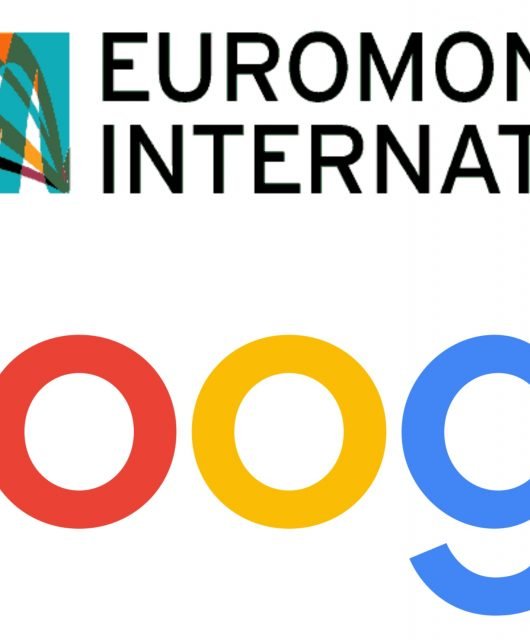Ramadan is a global season of reflection and introspection, with almost two billion people observing it globally, fasting daily and connecting with friends and family. The season brings about a transformation in behaviors and attitudes, and a change in every aspect of life.

It’s also a time to ready the home, prepare heartwarming meals and share gifts with loved ones. As a result, gifting and shopping is a big part of the Ramadan moment. The disruption of everyday habits leaves shoppers more open than usual to discovering new brands and products. In fact, people who experience a shift in habits are 2.5 times more likely to discover new brands1, making Ramadan a key time for businesses.
New changes means new opportunities
With people’s openness to new things during Ramadan, discoveries are taking place across borders. Studies show that 69% of Ramadan shoppers get “excited about trying new brands and products from abroad” and nearly 1 in 2 Ramadan shoppers globally (47%) made at least one cross-border purchase.2
Ramadan shoppers and observers are spending more on cross-border purchases than they did in previous years. And research shows that they are shopping from abroad across a range of different categories, with the most popular being fashion, electronics, health and beauty, food and beverage, and designer goods.2
Driving discovery across borders with Meta
At Meta, we’re seeing successful cross-border businesses adopt three key strategies during important shopping periods. These strategies help businesses reach new audiences, build deeper connections and create a frictionless customer experience.
Maximizing joyful discovery
People buying across borders are driven by different motivations. People may shop across borders to find higher quality products, products at a better price point or items that are unavailable locally. Furthermore, around 1/3 of people are also shopping from overseas retailers in the hopes of discovering new and interesting products during Ramadan.2
With Meta’s Worldwide and Regional Targeting solution, businesses can reach people across a broad international audience, and let machine learning technology deliver ads that are personalised to people’s diverse motivations and locations.
Additionally, forward-leaning cross-border marketers are increasing their chances of finding new customers by building on historical learnings. They are leveraging Multi-Country Lookalikes to reach audiences similar to existing customers in a new market. By leveraging the power of data and machine learning, businesses can build on the traits of their best customers to inform Ramadan campaigns.
Building personalized connections
Making content relevant to customers helps build meaningful connections, and can make people feel more comfortable navigating from an ad through to purchase.
For example, 67% of Ramadan shoppers state that “seeing content in my local language is important to me when purchasing from abroad”.2
Meta’s Dynamic Language Optimization solution can help businesses run one ad in up to 49 languages, delivering ads in the right language to the right person. Marketers can manually input translations or rely on an automatic feature that suggests translations to them. By using Multi-Language and Country Dynamic Ads businesses can also automatically show relevant items to global shoppers from a single product catalog based on their interests and actions, in their preferred language, local currency, stock availability and more.
However, localization goes beyond translation, it relies on a deep understanding of your potential customer base. Successful businesses bring creative and media approaches together to deliver ads that resonate with different groups of customers. To attract diverse audiences, marketers can use a variety of creatives based on customers’ motivations and then test them to see which resonate best.
Facilitating delightful purchases
Nine out of ten cross-border shoppers (91%) made serendipitous discoveries while Ramadan shopping—with almost a third purchasing straight away.2 Because these purchases are spontaneous it’s more important than ever to remove friction from the checkout process. A frictionless purchase journey can increase the chance of conversion. Any extra steps during checkout can prevent businesses from winning purchases and gaining satisfied, loyal customers.
Businesses are facilitating delightful purchase by identifying and reducing friction points on the path to conversion throughout a website or mobile app. This includes speaking the customer’s language from welcome to checkout, offering multiple locally preferred payment options, and providing multiple shipping options.
Meta’s Global Expansion Partners can help businesses optimise their cross-border business across localisation, creative, payment, logistics, advertising tools, advanced data solutions and more.
Businesses are driving cross-border sales on Meta today
Businesses around the world are successfully growing across borders on Meta. For example, the leading MENA streaming platform Shahid VIP wanted to reach a global audience with Ramadan-specific content. They leveraged mobile-first short-form videos on Facebook and Instagram to drive an uplift in subscriptions across the US and Canada. Their results included a 3.9% lift in action intent, an 8.2% lift in sign-ups and an 8.4% lift in brand awareness.
Ramadan is a time for reflection and mindfulness, as well as for transformation in behaviours and attitudes. This creates a unique opportunity for businesses to reach cross-border shoppers looking to discover products they’ll love—and Meta technologies can help build those connections. Please visit our Ramadan Cross-Border Business page to find out more.
Resources
- Richard Shotton, The Choice Factory, 1,121 participants Shifts in habits associated with shifts in buying behaviours.
- “Ramadan and Eid Study” by YouGov (Meta-commissioned online survey of 13,567 people aged 18+), AE, BD, EG, ID, MY, NG, PK, SA, TR, 13th May to 3rd June 2021
- Analysis from 27 Meta Ads Manager global split testing studies (Oct 2018-Nov 2019





